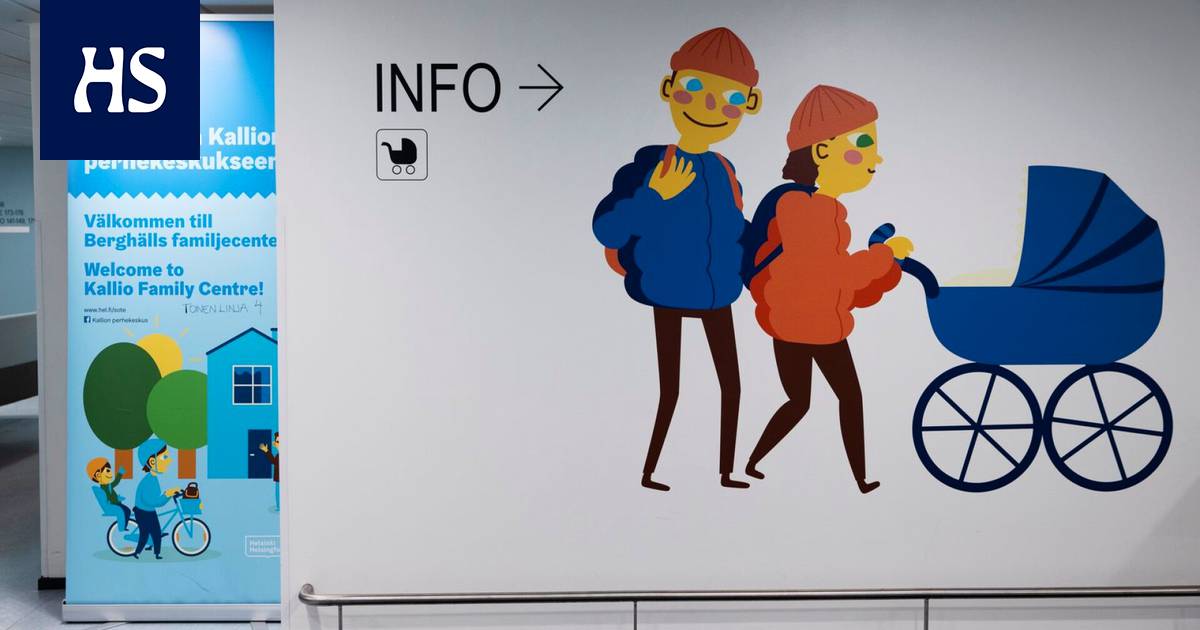Editorial|Editorial
The strength of the hundred-year-old counseling center is that families with children visit the counseling center almost 100 percent of the time, regardless of the family’s socio-economic background.
Finland was a poor country that had just gained independence in the 1920s, when counseling activities were started.
Finland’s first counseling center was founded in Helsinki’s Lastenlinna in September 1922. This year, the counseling center turns one hundred years old, and without exaggeration it can be said to have been one of the cornerstones of Finnish well-being.
The father of the Finnish consultation system is considered to be professor of paediatrics, architect Arvo Ylppö, who got the example for the consultation from Germany. The role of the Mannerheim Children’s Welfare Association in the early days of child counseling was also important. The name Neuvola was developed by Ylpö’s colleague, doctor Viljo Rantasalo.
In 1944, a law was passed on the municipalization of councils.
Finns can rightly be proud of their councils, and decision-makers must continue to side with councils. Thanks to the consultations, the mortality rate of both mothers and infants fell in Finland to one of the lowest in the world. Thanks to the councils, vaccination coverage for children is top-notch in Finland. Thanks to consultations, children’s illnesses and the need for support are detected as early as possible.
Practically all Finnish families with children pass the counseling. 99.7 percent of pregnant women go to counseling and 99.5 percent of families with children under school age.
The strength of the counseling centers is that they are an equal service for all families, regardless of socioeconomic status. However, we were already slipping away from this great goal as a result of the 1990s recession.
The change in the state contribution system in the early 1990s gave municipalities more opportunity than before to develop their services according to local needs. When the municipalities gained freedom and the recession hit, they reduced counseling services. In the 21st century, it was noticed that Finns were no longer in an equal position. The grievance was rectified by the 2010 Health Care Act and the 2011 regulation on counseling.
“
The well-being of the parents is also reflected in the child.
Slipping also happens today. Due to the coronavirus pandemic, many municipalities have postponed or completely omitted periodic counseling inspections, especially for play-aged children, even though they are required by law. Espoo, for example, announced at the beginning of the year that it will give up extensive four-year inspections. The five-year inspection is then intended to become more extensive. Similarly, Helsinki has skipped periodic inspections in recent years.
It is necessary to stick to the council inspections, so that every age group is treated the same. In periodic check-ups, it is possible to immediately deal with possible problems of the child or the family. Last year, the Finnish medical association Duodecim published a study by Riikka Riihonen, Tuovi Hakulinen and Suvi Luomala “Checking healthy children – what are the benefits of counseling services?”. The researchers’ conclusion was that without the systematicity of counseling activities, a larger number of children would be excluded from society’s support networks than at present. According to them, equal development of children is possible when services are legally available to everyone.
Council work is above all preventive health work. In the counseling, parents are supported to get rid of tobacco and intoxicants, and nutritional guidance is given to expectant mothers and those who have already given birth.
The change from the counseling’s early years is that the counseling does not focus only on the child, but on the well-being of the entire family. It is reasonable. The well-being of the parents is also reflected in the child. Parents’ mental health problems and other illnesses, possible intimate partner violence, family’s long-term financial problems or separation of parents affect the well-being of the whole family and therefore also the child.
The whole society saves thanks to a functioning advisory system. When problems are caught quickly, the child can be spared the symptoms later in life.
The editorials are HS’s positions on a current topic. The articles are prepared by HS’s editorial department, and they reflect the journal principle line.
#Editorial #Periodic #inspections #missed #counseling #center

/s3/static.nrc.nl/wp-content/uploads/2024/04/web-2604buicharles.jpg)







